A boon for Colombian students, Purdue, and society
| Author: | Laura Abbott |
|---|
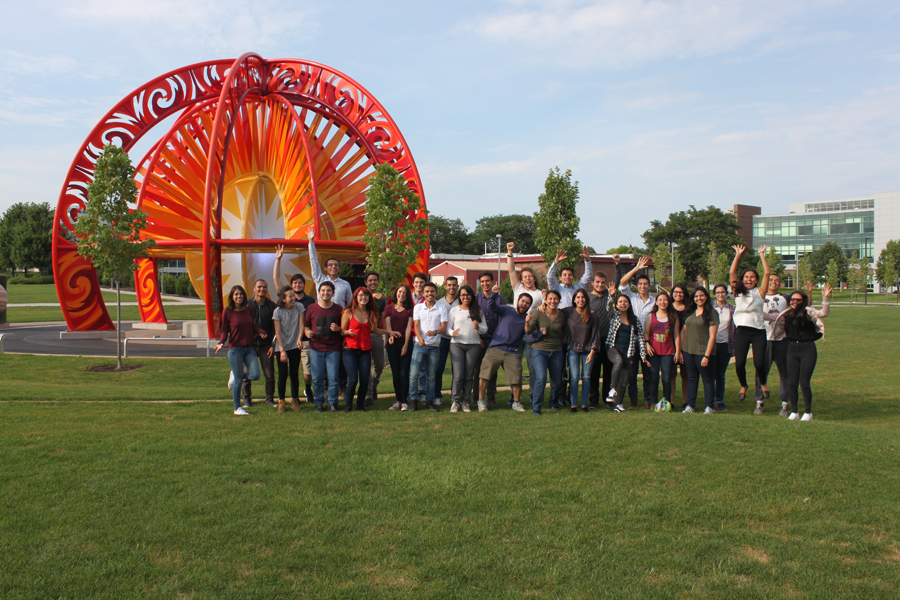
In its fifth year, the Colombia Purdue Initiative’s Undergraduate Research Experience Purdue-Colombia (UREP-C) has exposed 126 visiting scholars from Universidad Nacional de Colombia to Purdue research resources and enhanced their academic and personal development.
After launching in 2013 with four participants, the program currently serves 31 students — 14 of whom are women — who began six-month internships in June. These visiting scholars conduct independent research projects and are paired with faculty members and local families.
“The program opens doors for Colombian students, many of whom would not have had these opportunities, given their socioeconomic circumstances and sometimes limited access to research resources in their country,” says Juan Diego Velásquez, managing director of strategic initiatives for Purdue’s College of Engineering, who manages the UREP-C program with Nancy Rozo, director of the International Relations Office at Universidad Nacional. “Showcasing their skills on a wide stage, several visiting scholars have published journal papers, presented at professional conferences, and won academic awards.”
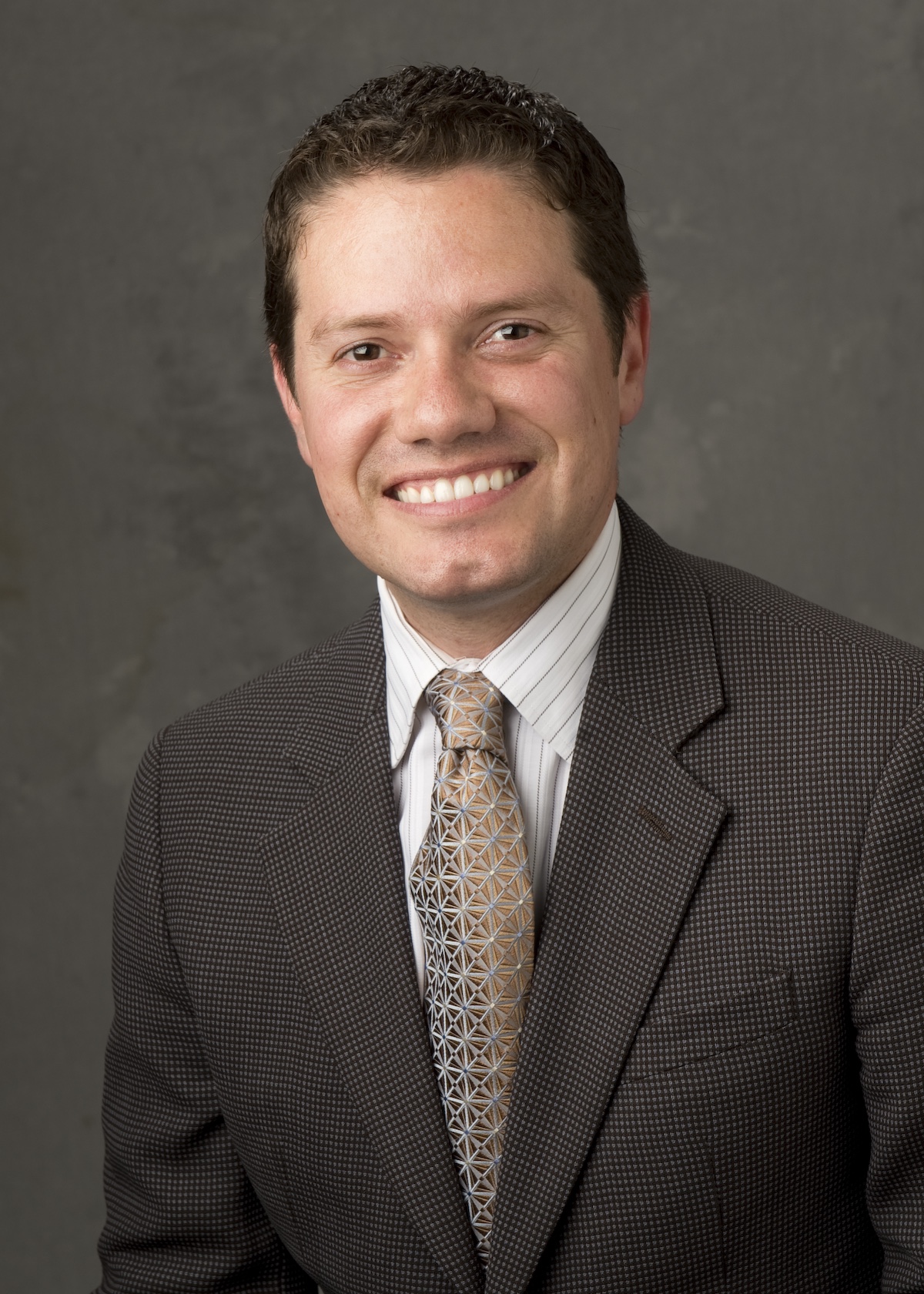
Mutual Benefits
It’s a two-way street. UREP-C interns provide important talent for Purdue faculty members’ research projects, helping solve such critical problems — in Colombia and worldwide — as water access and purity, coffee cultivation, transportation infrastructure, and disease prevention.
“Our faculty members are asking for Colombian scholars to assist them with research, and they praise the visiting scholars,” Velásquez says. “For example, one professor called a UREP-C intern one of the best researchers in his lab. Another faculty member said a Colombian scholar provided the bandwidth to tackle a research problem he had long wanted to address.”
In a particularly valuable development, Velásquez notes: “UREP-C has become an effective recruiting tool for Purdue to attract the best and brightest Colombian graduate students. Several interns have returned to Purdue to pursue master’s and PhD degrees.”
Success Factors
Velásquez attributes the program’s success to a combination of factors:
- The six-month internship term
- A strong partnership with Universidad Nacional, a leading Colombian research university
- The quality of interns, selected carefully by Universidad Nacional and Purdue for traits including academic excellence (top 10%) and English competency
- Best matching of students with faculty advisers, who support their research and provide academic and personal mentoring
- Purdue’s high-caliber research facilities; significant Colombian student population; and experiences spanning disciplines and cultures
- Participation of a full spectrum of Purdue colleges and other entities, including Engineering, Agriculture, Education, Health and Human Sciences, Liberal Arts, Krannert School of Management, Pharmacy, Purdue Polytechnic, Science, Veterinary Medicine, Purdue Libraries, Information Technology at Purdue (ITaP), the Purdue Research Foundation, and the Purdue Center for Regional Development
- Avid support from Purdue cultural organizations, which offer family-like friendship and activities
“Changing students’ lives”
“We are changing students’ lives to make them stronger, academically and personally,” says program coordinator Ulianova Vidal Gomez, a Colombian native who earned a PhD in Agriculture at Purdue this month and is a teaching assistant. “It’s amazing what they accomplish in six months in our multicultural, multidisciplinary environment. They leave with the potential to help transform Colombia.”
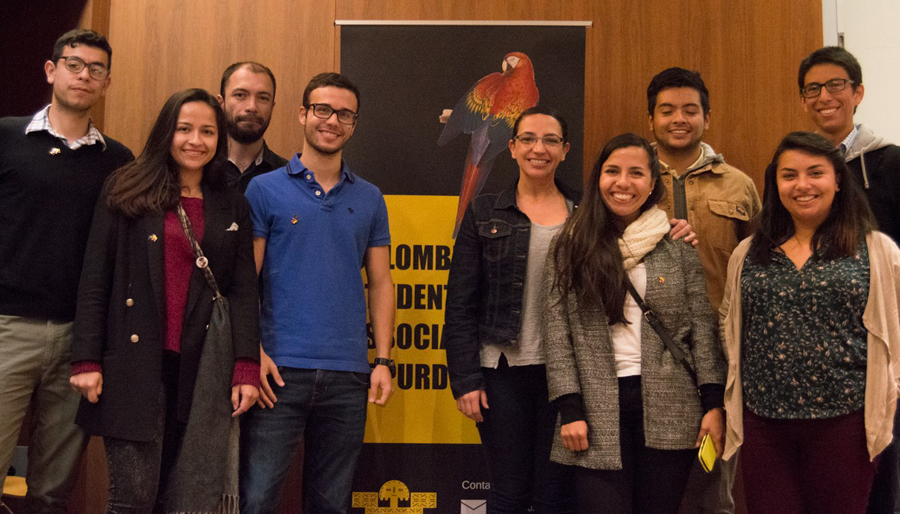
On the academic side, Vidal Gomez explains: “Our program helps the visiting scholars become better scientists. For instance, they present their findings at weekly seminars and at a symposium attended by advisers and deans from across Purdue and from Universidad Nacional. Advisers also help interns publish research papers and network within the scientific community.”
On a personal level, visiting scholars, housed in a Purdue Village building, are welcomed warmly and quickly develop local ties, thanks to advisers; hosts; and such Purdue organizations as the Latino Cultural Center, International Friendship Program, and Colombian Student Association at Purdue.
Visiting scholars’ perspectives
How do UREP-C participants describe their experiences?
“The program definitely changed my life, from the perspectives of research and world cultures,” says Carlos Brito, a former visiting scholar who now is a Purdue research assistant pursuing a PhD in entomology. “It was cool because I got to interact with other people from Colombia in different areas, including chemical engineering, accounting, physics and math. I also learned about cultures of other South American countries, as well as China, India, the Middle East, Africa and Australia.”
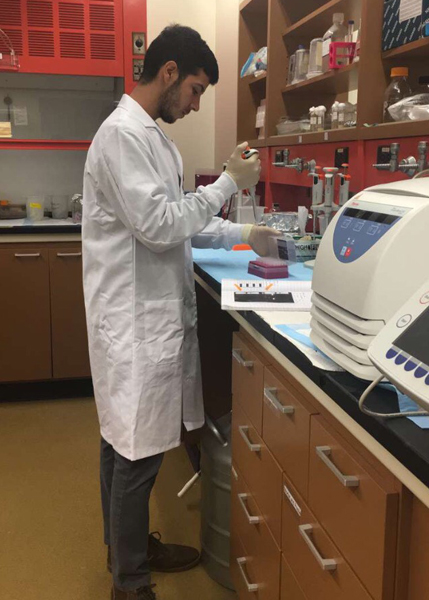
A highlight for Brito was publishing a paper on his undergraduate research findings in BMC Genomics. He currently is investigating a technique to suppress a mosquito gene that causes dengue, Zika and similar viruses that have affected Colombia.
Another outstanding former intern who has returned as a Purdue graduate student is Lisa Lorena Losada Rojas, now working on a funded research project in civil engineering. Her UREP-C project, developing a model to evaluate how mass transit systems influence land use, won her a Universidad Nacional award for best undergraduate research thesis. She delivered related research presentations at two U.S. transportation conferences and was interviewed by national news media — opportunities she says she never had imagined.
Losada Rojas credits her adviser, Nadia Gkritza, associate professor of civil engineering and agricultural and biological engineering, with encouraging her to participate in the conferences and Purdue’s Women in Engineering Program. “She’s like a mom and really organized and aware of your needs,” the former visiting scholar says.
In turn, Gkritza comments: “I was impressed by Lisa’s academic preparation, initiative and work ethic.” Of UREP-C, she adds: “I’m very supportive of this program. It has been successful overall and diversifies the pool of engineering students.”
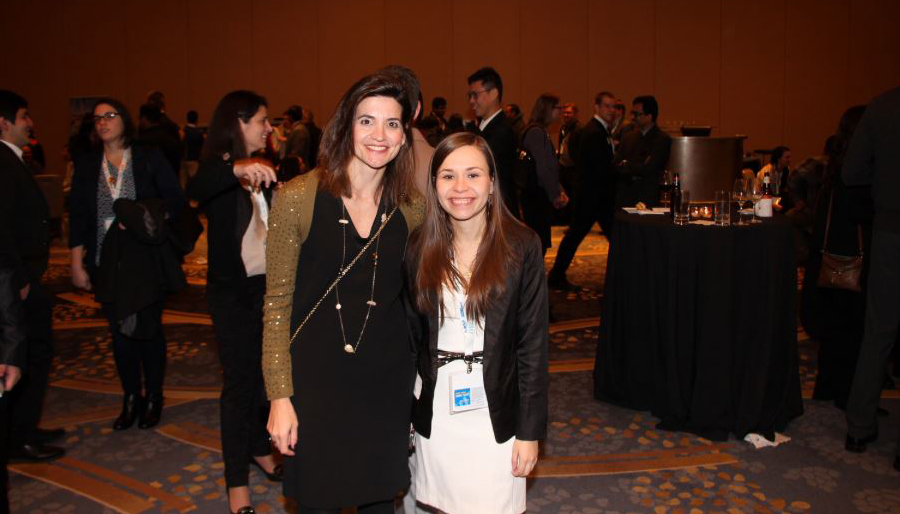
Personal Growth
Along with offering academic advantages, the internships nurture personal growth, including cross-cultural learning.
“Everyone here makes me feel like family, which has been essential,” Losada Rojas says. “My internship experience helped me learn basic concepts, like how to manage time, what to eat, how to create a healthy environment, and how to become independent. Other Colombian interns even gave me items to start my own home.”
The International Friendship Program (IFP) plays a key role in helping the visiting scholars acclimate to life in the U.S. Its host families invite students to join in events including concerts, backyard barbecues, Scrabble games, Sunday dinners, and Fourth of July and Thanksgiving festivities. IFP also organizes trips to such destinations as Chicago.
“There’s something special about the bonds that develop between area host families and the Colombian students/researchers in UREP-C,” says Beth Tucker, intercultural programs specialist with the Center for Intercultural Learning, whose responsibilities include IFP. “I can’t say who benefits more from IFP-Colombia — the hosts or the students!”
Another supportive organization, the Latino Cultural Center (LCC), “aims to create a home away from home for students,” says its director, Carina Olaru. “This is particularly important for international students as they are far from home.”
LCC involves UREP-C interns in activities including Colombian Independence Day celebrations; karaoke and poetry nights; volunteer tutoring of Purdue students in Spanish as a second language; visiting Imagination Station in Lafayette; and using the LCC for study, meetings, television or meals.
“Paying it forward”
Ultimately, UREP-C benefits Colombia when visiting scholars return to help their country address pressing needs.
For example, Losada Rojas is researching mass transit issues and looking to become a Colombian university professor, while Brito is considering applying his learnings at the Instituto de Nacional Salud (National Institute of Health) in Colombia.
Velásquez, a Colombian expatriate who earned bachelor’s and master’s degrees and a PhD in industrial engineering at Purdue, is giving back in a personal way as well.
“I was fortunate in that my family was able to support me when I was a student, which is not always the case for many of our visiting scholars,” Velásquez says. “Now I’m paying it forward. It’s rewarding to have the opportunity to open up the world to Colombian students who come to Purdue with the drive, intellect and interest to succeed and make a difference.”
